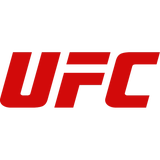
Sad end for BJ Penn doesn't wash out a beautiful career
LAS VEGAS -- BJ Penn was born with a strand of warrior DNA. That has to be the only explanation for a career that took him to UFC championships in two weight classes, against a who's who of fighters who have graced MMA's history books.
During his 13 years in the sport, Penn had 13 of his 28 fights against men who at some point of their career wore UFC championships. He fought at featherweight, lightweight, welterweight, middleweight, and for good measure, fought an open weight fight against an opponent, Lyoto Machida, who at the time weighed 222 pounds.
He had knockout power, was a ground wizard, and could wrestle like he'd been doing it his whole life. Combined with his endless thirst for competition, there was seemingly nothing that he couldn't do on his best day.
A few days before his TUF Finale fight against Frankie Edgar, I asked Penn if he'd one day be a 65-year-old man sitting on his couch watching UFC fights, thinking to himself that he could take those young guys.
He smiled that charismatic, cherubic smile we've come to know over the years.
"Within reason, I think so," he agreed. "It's tough to get it out. That's going with me to the grave I think."
It was a very BJ Penn kind of way to say it, but he always had his own way of doing things.
In a way, it was Penn's creation turning against him. He had been a one-man tipping point for the UFC's lighter weight classes, joining the UFC in May 2001 with no prior MMA experience. It mattered not. He starched each of his first three opponents by knockout, and quickly became one of the promotion's most popular athletes. The Penn phenomenon never left.
He won his first UFC championship in 2003. Facing Matt Hughes on a 13-fight win streak, Penn was a sizable underdog. It was here Penn went up in weight for the first time, embarking on one of his personal quests. That was really what he was doing.
There was a saying back then when some fighters would say, "Let's go find a loss." It wasn't literal; they were mostly looking for the best available challenge. Hughes was exactly that, a monster wrestler who had completely overmatched the UFC's best welterweights, and here a lightweight was going to challenge him? The prevailing notion was that he had no chance.
"When he beat Matt Hughes, people forget Hughes was GSP before GSP," former UFC welterweight champ Matt Serra told FOX Sports. "He was the guy that was just a wrecking machine. People were scared for BJ in that fight, and I remember watching and thinking, 'Oh my God.' It's something that just wasn't done. Here's this big bully wrestler, and this little Hawaiian guy does that to him."
His rivalries helped make his legend. There was Hughes and Georges St-Pierre, and finally Frankie Edgar, the one who eventually made Penn realize that time had passed him by.
It was the most painful of admissions, Penn breaking down in the post-fight press conference as he discussed his time.
"My biggest regret would have been if I didn't get in the ring tonight," he said. "Because I'd always wonder and I'd always kick myself in the butt and complain to Dana and everyone. 'I could have did it again.' And now I know for sure that I can't."
In the end, Penn's record of 16 wins, 10 losses and two draws does not look like a Hall of Fame type of resume. It doesn't stack up to some others who are in the conversation of the best fighters ever. But the record is just part of the study. It is true that he might have put together a more impressive record if he'd stayed at a more natural weight class rather than bouncing around, but he was also giving the fight world what it wanted, someone willing to risk everything.
It's also true that at his best, he was dominant, smashing Diego Sanchez in a one-sided beatedown, crushing Sean Sherk, stopping Joe Stevenson's momentum in its tracks.
"He's one of the best 155-pounders of all-time," UFC president Dana White said. "He built that weight class. He built up that weight class, and he was responsible for helping build the UFC. That's his legacy."
"When I first got into the sport, BJ was the guy," Edgar added. "He did a lot for the lightweights, so I think we owe BJ a lot."
Legacy is an overused word in sports, but particularly in combat sports, where anyone of any name recognition is said to have done something that will last over time. Many of those will be mostly forgotten.
Not Penn. A building block for a division. One of only two men to win UFC belts in multiple weight class. A road warrior willing to engage any opponent on their terms. A showman.
At 35 years old, his career now falls into a sport's history that will never forget him.
